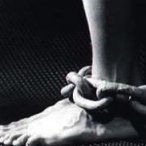
19 de julio de 2013 | Entrevistas
«4000 people in slavery in United Kingdom»
Despite progress in legal texts or international conventions, slavery situations still exist.
Descargar: MP3 (7.3 MB)
Today, millions of people are sold like objects, and forced to work for little or no pay. They are often submitted to hard conditions of living (insults, depriving of freedom), without any documents nor official recognition.
Saturday 29th of june, the French newspaper «Marianne» published an article about european workers conditions of life, which, due to a form of economic dumping, can sometimes be out of laws and violate the human rights. Indeed, in European Union, a system implemented in 1996 permits to certain employers to send workers to another EU country, maintaining the payroll of its country of origin. This practice is very used nowadays for its competitives advantages because it allows some companies to pay less social security. The newspaper told about «low cost» workers, who often loose work rights and dignity in the country where they are sent. But the economical aspect of the issue must not hide the social one. Indeed, it concerns directly what we call «modern slavery». Modern slavery has various aspects: sexual exploitation, forced labor, forced begging, domestic exploitation. The last one, which is practiced in the closed private homes, stays for instance very difficult to identify and punish. And it doesn’t only concern poor or developing countries: the Comitee Against Modern Slavery (Comité Contre l’Esclavage Moderne), a French organization, estimates than between 3 000 and 5000 people in France are victims of slavery.
«The desinterest of many governments still allows the explotation of vulnerable workers», declared Aidan McQuaide, the director of «Anti-Slavery», a British NGO fighting against modern slavery. He spoke about 21 million of people in situation of slavery today accross the world. According to him, the international and economical crisis we are currently living is reinforcing this phenomenon.
«Certainy the pressure on cheap goods leads international corporations to seek producing from often poor or non-democratic countries with low standards of laws».
Common characteristics distinguish slavery from other human rights violations: to be forced to work through mental or physical threat, owned or controlled by an «employer», also usually through abuse or threatened abuse, dehumanised, treated as a commodity or bought and sold as property, and physically constrained. For McQuaide, national governments must take their responsabilities and participate to build a coherent and comprehensive approach of these crimes. Because it is practiced towards vulnerable and voiceless people, he added the issue had a real link with the reduction of poverty. Against neoliberalism rules and deregulation of not only the economy, but also the human rights security, the issue must take more place, from grassroot to international level.
Photo: http://www.dominicains.fr








